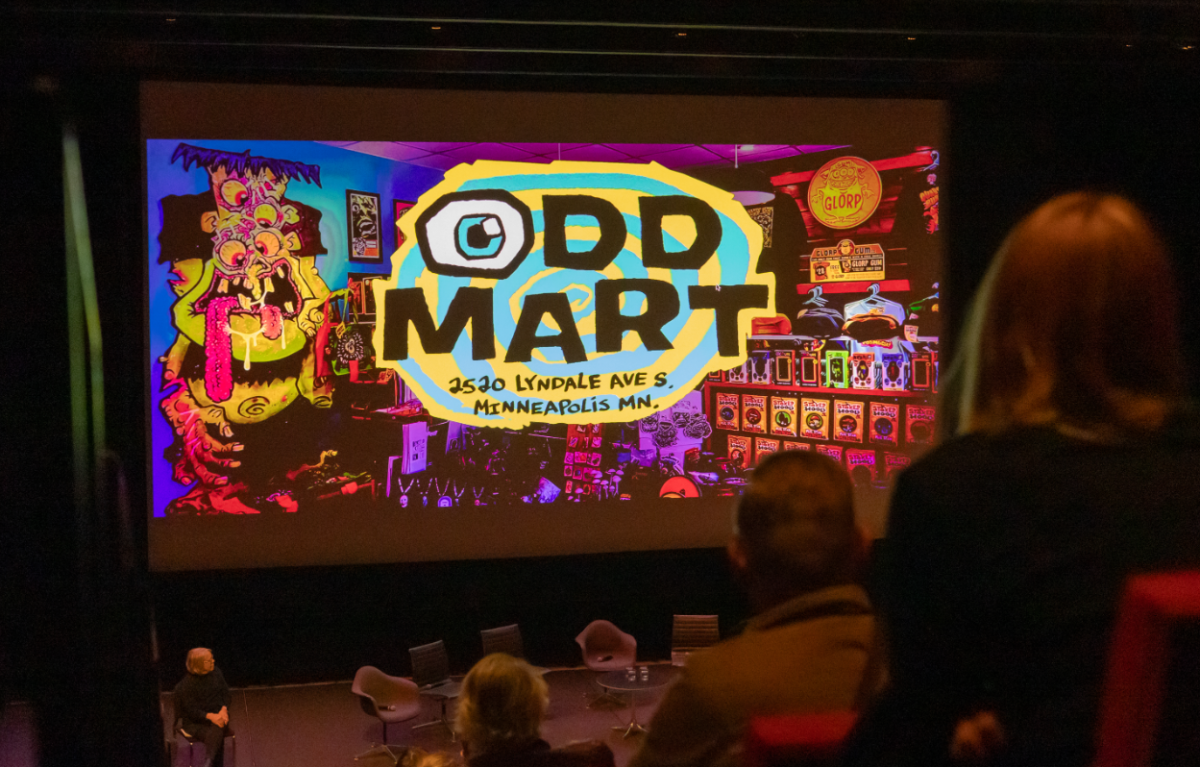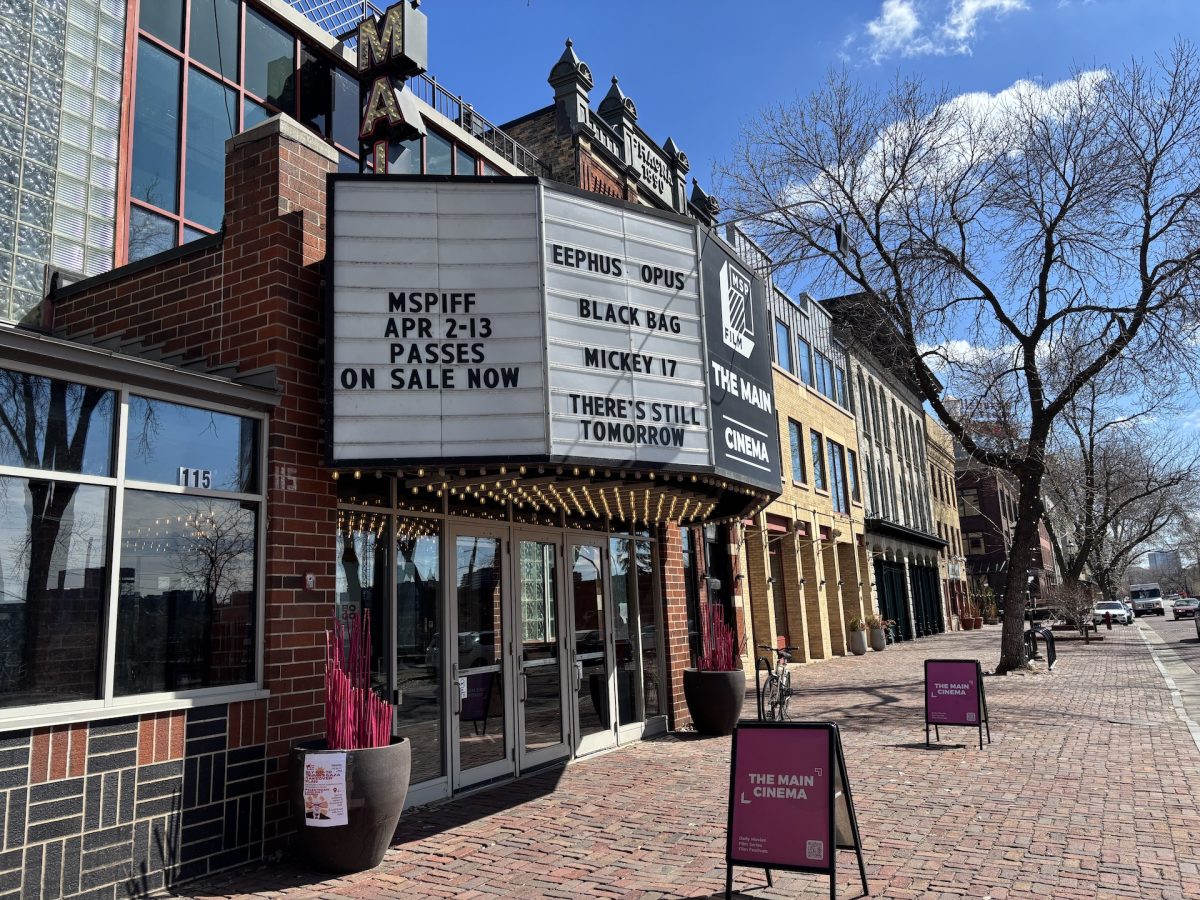Just because a band sings “Surfing U.S.A.” and “California Girls” doesn’t mean it’s a surf band.
Surf music has a long history, encompassing sounds as diverse as Dick Dale’s “Miserlou” and surf-punk pranksters Man or Astroman?. Recently, the genre has had a local resurgence.
Chris Goodnight and Phil Belknap both play in the local band Big Surf, and Ron Thums hosts KFAI’s surf, hot-rod, rockabilly show “Radio Rumpus Room” with Jean Silverberg. These surf music purists dismiss The Beach Boys. Rather than traditional surf music, Brian Wilson and friends were merely Californian pop, Thums and Silverberg say.
The major disqualifying trait of The Beach Boys is the group’s emphasis on vocals. Genuine surf bands are primarily instrumental.
But, Thums notes, “All surf bands are instrumental, but not all instrumental bands are surf.” Thus, a band like The Ventures is also ineligible.
Despite The Ventures’ association in pop music with rip tides and sunny beaches, the band does not adhere to some traditional guidelines. Most real surf bands use Fender guitars to create the sound originated by Dale (known as the king of the surf guitar). The Fender allows for the heavy reverb sound to capture the essence of the ocean.
Big Surf follows both guidelines – pure instrumental and the Fender Jazzmaster wielded by guitarist Belknap – making it an authentic surf band. The band also confirms that even though surf music is connected to and rooted in California, the genre is international. A band from landlocked Minnesota can still search for the perfect wave.
In fact, Big Surf is not the only local surf band in history. One of the most renowned surf bands of the 1960s is a Minneapolis group, The Trashmen.
“On ‘Radio Rumpus Room,’ The Trashmen are our heroes,” Thums said.
The Trashmen were greatly influenced by the early rock ‘n’ roll found in dance halls, as well as their Dale records. The band, which started in 1962, actually went to California to establish a sound that would set it apart at home. While the members were there, Thums said, they attempted surfing, and one of them nearly drowned.
In February 1964, The Trashmen’s “Surfin’ Bird” hit No. 4 on the pop charts.
“It would have gone to No. 1,” Thums said, “but The Beatles came out with ‘I Want to Hold Your Hand’ and stole the spot.” The peak of popularity for surf bands began around 1962 and ended in 1964; “(The Beatles) stopped surf music,” Thums said.
A second wave of surf music arose in the late 1970s, and Minnesota was again a big part of it. The Overtones brought surf to the punks and new wavers at the Longhorn, a club famous for its role in shepherding the birth of Minnesota punk rock. Danny Amis, of the Overtones, (who now plays in Los Straitjackets) wrote “Calhoun Surf,” a song The Ventures eventually covered.
After the “Pulp Fiction” soundtrack was released in 1994, a third wave of interest sprung for surf. Thums, though, said it is unclear whether Big Surf still fits in this wave.
“Surf only lasted for a brief period, from ’62 to ’65, and it basically stayed the same. Right now, it’s still evolving; there’s all these different interpretations coming out Ö It is not the Rockin Hollywoods,” Thums said, contrasting new surf sounds with a well-known local cover band.
Big Surf differs notably from other surf bands in its integration of world music. Belknap used to play in the group Electric Arab Orchestra, and the Middle-Eastern influence is often obvious, especially on the song “Falafel.”
Still, while Big Surf expands on the surf genre, it maintains its essentials.
Though the group is far from the ocean (and none of the members surf), Belknap said he believes it doesn’t matter, as long as the music “captures the adventure feel.”
Drummer Chris Goodnight said, “The music is about this idealized vision of the beach. It’s the power of the wave and vastness of the ocean. It’s hard to explain the phenomenon of nature with words, but you can with music. That’s part of the reason it doesn’t have lyrics.”
Currently, Thums said, there are more surf bands playing at one time in the Twin Cities than ever before. Other local surf bands include: Surf Nation, The Awkwards, Ronnie Lake and the Men of Iioto, Surf Dawgs, Baja, Crooked Eye and the Mojo Spleens.
Once Big Surf and “Radio Rumpus Room” began a monthly surf night at the Hexagon Bar in August, Thums said, surf bands “started coming out of the woodwork.”
Thums and the members of Big Surf said they agree the Hexagon Bar nights have raised people’s interest in surf music as well as blowing away preconceived notions about the genre.
The Twin Cities surf revival seems secure, at least until the next big wave.







